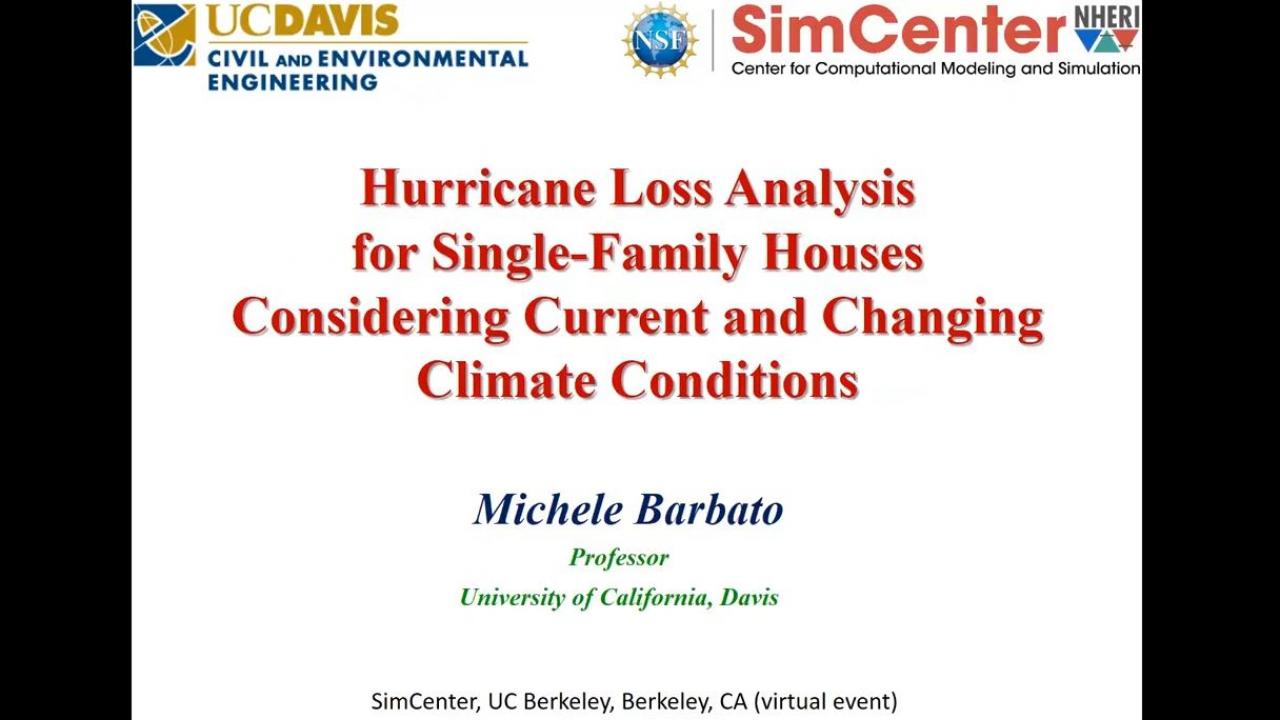
Hurricane Loss Analysis for Single-Family Houses Considering Current and Changing Climate Conditions
Hurricanes are among the most costly natural hazards affecting communities worldwide, in terms of both property damage and loss of life. The landfall of a hurricane involves different hazard sources (i.e., wind, windborne debris, flood, and rain) that interact to generate the hazard scenario for a given structure. Hence, a novel multi-hazard methodology is required to accurately estimate the risk due to hurricanes and to provide easily interpreted guidance to insurers, emergency administrators, builders, and owners on how to reduce potential losses.
Co-Director Dr. Michele Barbato was invited to a SimCenter Webinar hosted by UC Berkeley NSF NHERI to present on his "Hurricane Loss Analysis for Single-Family Houses Considering Current and Changing Climate Conditions." In his presentation he illustrates a novel probabilistic Performance-Based Hurricane Engineering (PBHE) framework that is based on the total probability theorem. The proposed framework disaggregates the risk assessment analysis into independent elementary components and innovatively accounts for concurrent and interacting hazard sources as well as for their possible sequential effects. The presentation also demonstrates how the PBHE framework can be used for the loss analysis of single-family housing in the US Gulf Coast through a cost/benefit comparison of different hazard mitigation techniques. A projection model for future hurricane wind hazard under changing climate conditions is also be presented, and the effects of different climate change scenarios on expected losses is discussed in the one-hour webinar.
Watch the full webinar from October 6, 2020 and reach out to Dr. Michele Barbato directly with any follow up questions.